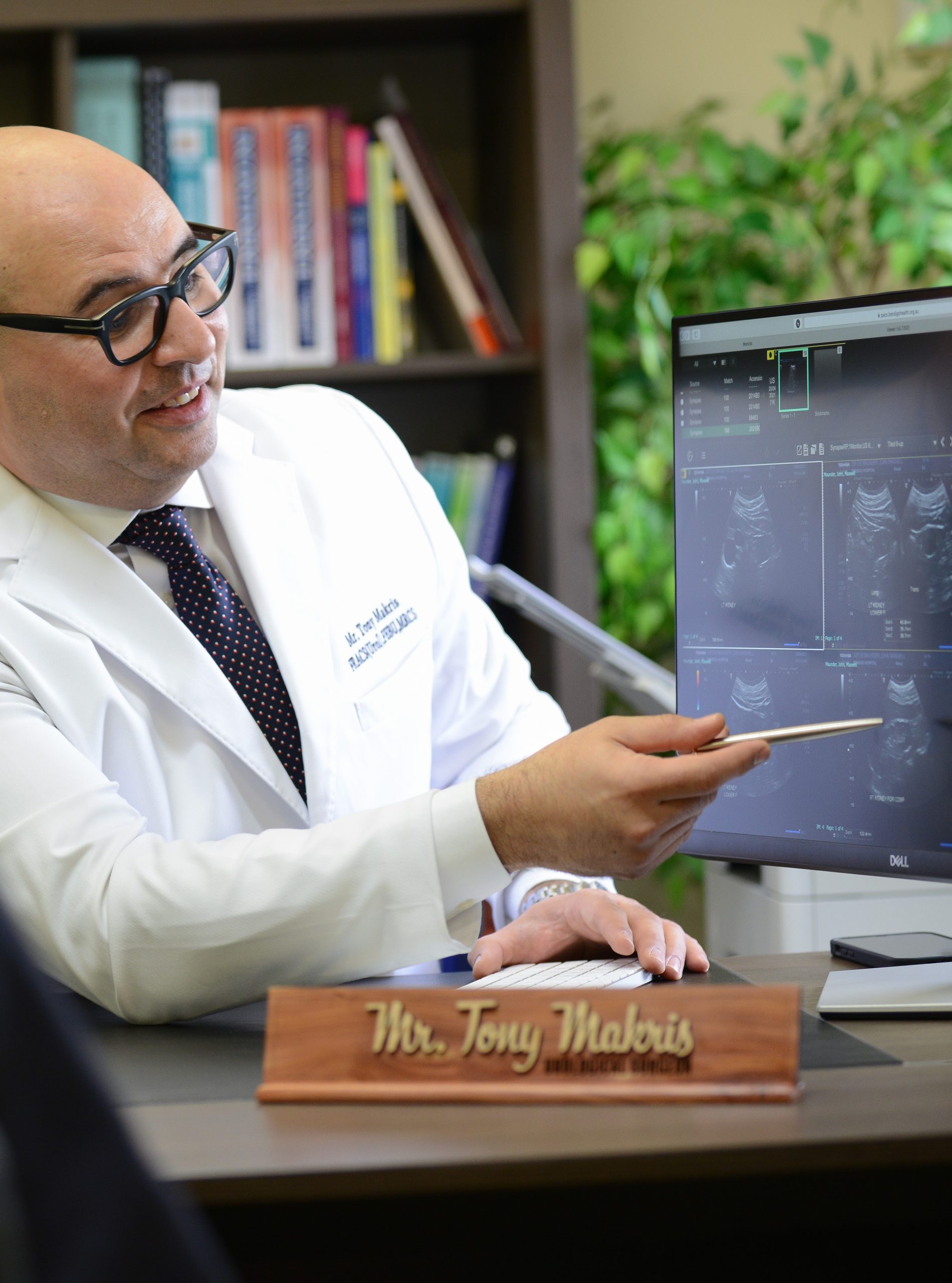Penile Cancer
About penile cancer
Penile cancer is a type of cancer which begins in the foreskin, glans, or the skin of the penile shaft. There are several types of penile cancer, but all of them are quite rare. Although it is not contagious, recent studies have shown a link between penile cancer and HPV.
At Paradigm Urology, penile cancer is managed by Dr. Tony Makris. Dr Makris is a urologic surgeon with extensive experience in urologic oncology.

How is penile cancer diagnosed?
Physical examination
The first step in diagnosing penile cancer is a physical examination. Your doctor will look for abnormal lumps or lesions on the penis and feel for swelling in the groin’s lymph nodes. If they detect an abnormality, other tests will be ordered to provide further insight.
Biopsy
Irregular lesions or swelling on the penis will usually be investigated with a biopsy. The doctor removes a small sample of tissue from the penis and sends it to a pathology lab for testing. A pathologist will examine this under a microscope to check for cancer cells.
Lymph node biopsy
A lymph node biopsy may be used to see if the cancer has spread further throughout the body. This usually involves removing some of the lymph’s cells and fluid with a fine needle aspiration (FNA). In some cases, the lymph nodes may be surgically removed for testing. A pathologist uses a microscope to check them for cancer cells.
Imaging tests
Your doctor may also use imaging tests – such as CT scans, x-rays, ultrasounds, bone scans, MRIs or PET scans – to produce clear images of the tumor and check for spread. These are usually used to see if penile cancer has spread to another location in the body.
How is penile cancer treated?
The goal of penile cancer treatment is to eliminate the cancer cells while preserving the function of the penis as much as possible. Depending on your overall health and the grade of your cancer, this may include a variety of approaches. Dr Makris will take plenty of time to help you understand all available treatment options and which will be most suitable.
Partial penectomy
Early-stage penile cancer may be treated with local excision surgery/partial penectomy. This involves cutting away the cancer and some surrounding tissue to prevent it from returning. It is most often used to treat squamous cell cancer on the penis, which makes up about 95% of penile cancers.
Medication
Some medications and therapies may also be used. These may be used to fully manage some early-stage instances of penile cancer, or may be used in conjunction with surgical treatment to prevent the cancer from returning.
Radical penectomy
In advanced cases, surgery to remove all of the penis may be needed. This is called a radical penectomy.
Penile reconstruction is approached on a case-by-case basis and not every approach will work for everyone. Dr Makris has a special interest in reconstructive surgery and can advise to this individually.
Penis procedures
Paradigm Urology offers a range of penis procedures including:
- Drainage of the penis for priapism
- Implantation of penile prosthesis
- Penile injections for erectile dysfunction
- Repair of fractured penis
- Penile straightening procedure
- Penile cancer procedures
- Circumcision
- Dorsal Slit
- Frenuloplasty
- Biopsy of skin lesion
- Meatal dilatation
- Meatoplasty